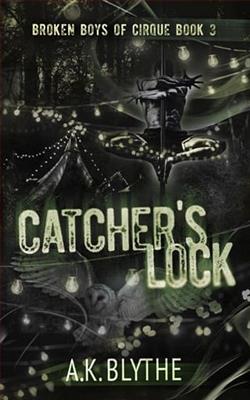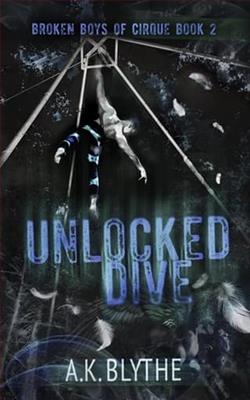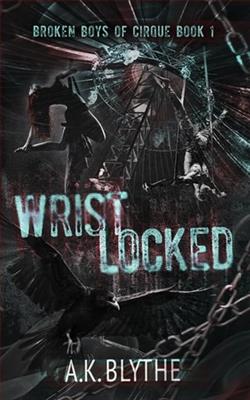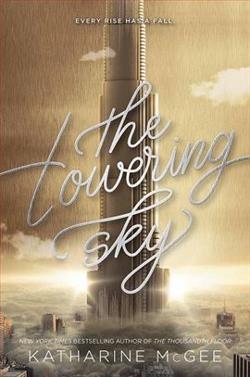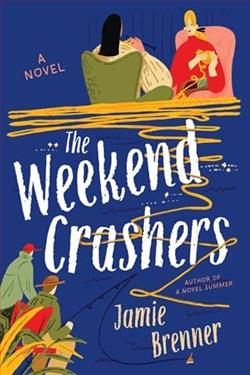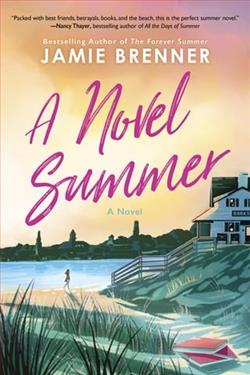Page 34 of Untaming the Cowboy
The week wore grooves into Luc’s days—sun up before the birds, boots on, coffee scorched black, check the north fence before the heat could chase a man inside. By eight he and Beau had the side-by-sides loaded: posts, wire, a bucket of insulators clanking under a rag. Mara rolled in with two heaping pans from her mama’s kitchen and a list in her hand that brooked no argument.
“Lanterns strung from the big cottonwoods,” she told them, dark braid swinging. “Power cords taped down so nobody sues you. And I’m not changing my mind on the hand-washing stations.” She pointed her pencil. “Luc, that means now.”
He grunted and got to it. It was easier to follow orders than think about the crowd Dahlia had promised—the ATVs, the horses, the music. Easier to keep his brain pinned to tasks: test each GFI outlet; move the portable corral panels to the east pasture; stake the signs Dahlia painted in her looping script—TRAIL START, COOKOUT, DANCEFIELD—bright on salvaged barn wood.
She worked beside them, paint on her wrist, gloss gleaming on her mouth. Dahlia moved with a choreographer’s memory, one eye on the work crews from the Haven’s Chicks and the other on her clipboard. When she laughed, people sped up. When she frowned, they did too. All week it felt like that—Luc’s ranch bent into a little town under her will.
On Thursday a white horse trailer the length of a city bus rolled up the lane and parked next to the pens. Out climbed Thee Teylor Skye Beaumont, as she introduced herself to everyone inside of three minutes. Beige hat immaculate, shirt starched, bronze skin sunkissed, those jewel-toned eyes that smiled before her mouth did. Crownless, yet everything about her said queen. She hugged Dahlia hard and kissed her cheeks, then set to work as if Blaze Haven had been her childhood chore.
“Where y’all keep the spare barrel covers?” Her voice carried over the thud of boots and the chuff of horses. “And who do I pay for hay bales? We’ll need a photoline.”
Beau, amused, tossed her the keys to the supply shed. “You runnin’ this event or ours, Miz Beaumont?”
She winked. “Depends who does it better.”
Beau Whitaker never worried about anything until it was worth a holler. Six-four, broad as the barn door, beard threaded with red, he usually had a joke lodged under his tongue. Mara Santiago balanced him. She planned for catastrophes, carried vet wrap in every pocket, and saw trouble before it stomped through a gate. Luc trusted them both; they had earned it.
By Saturday the ranch breathed a different rhythm. The road in had a dust plume that refused to settle. Trucks lined the fence lines. Kids cried at goats, then fed them anyway. Someone’s auntie set three iron pots over a trench of coals, steam perfuming the air with sausage, corn, and hint of bay. Music testers thudded the speakers while riders warmed up their mounts. On the drive, Draven—the neighbor and leadingfool—arrived bareback on his sorrel, grinning, his fiancé Cashea shining in an orange top that announced she had opinions.
Dahlia wore cutoffs and a tee with Blk Riders Rise across the front, a huge bow pinned in her hair that should’ve been ridiculous and instead looked ceremonial. She moved from crew to crew, hush-praising an elder rider on his gaited gelding, fixing a mic cable with gaffer tape, hugging little girls who wanted their braids tied with the same ribbon as hers. She made a point of it—call out the names folks forgot when the story of the West got told. She booked a parade of Black cowboys and riders to open the night, and made sure their mamas had reserved seating and plates loaded first.
Luc tightened the cinch on Blaze while he watched her. Working gave him calm. Two fingers under the latigo so it wouldn’t pinch, then saddle pad smoothed flat, bit adjusted. Blaze shook his head at the noise, ears flicking. “I know,” Luc muttered. “We’ll cut out to the creek once they hit the trail.”
“Boss.” Beau stepped in, smelling of sweat and charcoal. “You good?”
“I’m good.”
Beau studied his face anyway. “You want me to put someone else on gate duty?”
“I said I’m good.”
Beau didn’t push. He clapped Luc’s shoulder and went to wrangle the ATV line that already had three cousins arguing.
By sunset the scene blazed. Lanterns pooled honeyed light in the trees. The sky ran from tangerine to indigo. Engines revved by the east pasture, a swarm of gnats in metal form. Horses sidestepped and danced under riders who knew their cues. A DJ set under the hay barn awning cued zydeco, then slid into a hip-hop set; the beat landed in rib cages and boots answered it. Line dancers snapped to attention, rows forming and dissolving without a single PA announcement.
Teylor made a circuit with Dahlia, greeting old-timers who recognized her from rodeo circuits, grinning for quick selfies she barely paused for. She was elegance and grit—jeweled belt, gloves tucked in her back pocket, nails flawless, attention hawk-sharp. “We’re missing two volunteers at the first aid tent,” she told Mara. “I’ll cover until you steal somebody.”
“You’re a menace,” Mara said, affection ringing through the words. “Don’t disappear.”
“I shine,” Teylor corrected, then swished off again.
Luc worked the gate as the first trail group filed out, a line of riders and ATVs threading the fence gap into grass rippling under dusk. He waved them through, counted heads, shut the chain, reopened. Strobing lights from an overexcited side-by-side trailed starbursts on the oak trunks. Firecrackers popped somewhere near the cook station—small, illegal, stupid—and laughter flared behind it. His stomach tightened.
Dahlia drifted to his side during a lull, sipping sweet tea from a mason jar, cheeks flushed. “You eating at all tonight?”
“Later.” He kept his eyes on the flow, hand on the chain. If he watched the crowd, the picture tilted.
She touched his elbow. “I can pull Beau if you need to walk.”
“I said later.”
The line reformed; he lifted the chain.
“My Type of Carryin On!” the DJ yelled, and the field screamed back, the song kicking from the speakers with a bass that rapped on bone. ATVs bucked forward, riders whooping. Someone decided a doughnut near the gate was God’s will. Luc gestured them off and they peeled away, mud spattering his jeans. Another string of firecrackers went off near the grill. He felt it without seeing—the pop-pop-pop punching the air, a cheap simulation with real teeth.
He forced breath in, four counts. Out, six. Soldiers taught themselves tricks. Sometimes they held.
The second wave lined up. “Country Girl!” the DJ promised, and the beat rolled, clapping hands synced across yards of grass. Riders bounced in their stirrups, grinning. A heel hit a muffler. Metal pinged. A woman shrieked in delight. Luc’s vision narrowed, color leaching. He blinked, blinked again. Someone was speaking to him—Beau?—but the voice came from underwater.









